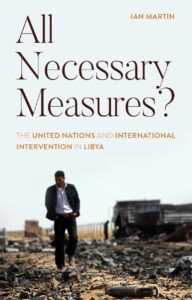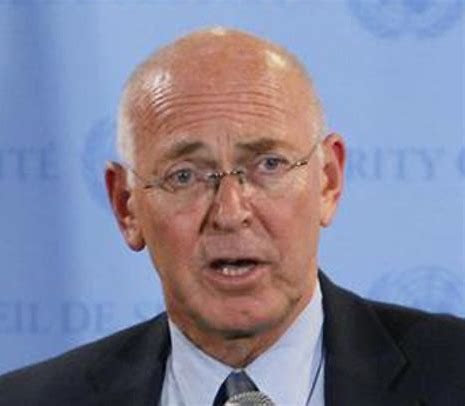All Necessary Measures? – UN & International Intervention in Libya 2011 w/ Ian Martin
King's College London
Strand
London
WC2R 2LS
All Necessary Measures? author Ian Martin will be in conversation with Mats Berdal about the international intervention after the 2011 Libyan uprising against Muammar Gaddafi.
About the event
The international intervention after the 2011 Libyan uprising against Muammar Gaddafi was initially considered a remarkable success: the UN Security Council’s first application of the ‘responsibility to protect’ doctrine; an impending civilian massacre prevented; and an opportunity for democratic forces to lead Libya out of a forty-year dictatorship. But such optimism was soon dashed. The UN’s former representative on the ground in Libya, Ian Martin, offers his verdict on how the NATO mission unfolded, then unravelled. Could it have been otherwise?
About the book
The international intervention after the 2011 Libyan uprising against Muammar Gaddafi was initially considered a remarkable success: the UN Security Council’s first application of the ‘responsibility to protect’ doctrine; an impending civilian massacre prevented; and an opportunity for democratic forces to lead Libya out of a forty-year dictatorship. But such optimism was soon dashed.
 Successive governments failed to establish authority over the ever-proliferating armed groups; divisions among regions and cities, Islamists and others, split the country into rival administrations and exploded into civil war; external intervention escalated. Ian Martin gives his first-hand view of the questions raised by the international engagement. Was it a justified response to the threat against civilians? What brought about the Security Council resolutions, including authorising military action? How did NATO act upon that authorisation? What role did Special Forces operations play in the rebels’ victory? Was a peaceful political settlement ever possible? What post-conflict planning was undertaken, and should or could there have been a major peacekeeping or stabilisation mission during the transition? Was the first election held too soon?
Successive governments failed to establish authority over the ever-proliferating armed groups; divisions among regions and cities, Islamists and others, split the country into rival administrations and exploded into civil war; external intervention escalated. Ian Martin gives his first-hand view of the questions raised by the international engagement. Was it a justified response to the threat against civilians? What brought about the Security Council resolutions, including authorising military action? How did NATO act upon that authorisation? What role did Special Forces operations play in the rebels’ victory? Was a peaceful political settlement ever possible? What post-conflict planning was undertaken, and should or could there have been a major peacekeeping or stabilisation mission during the transition? Was the first election held too soon?
As Western interventions are reassessed and Libya continues to struggle for stability, this is a unique account of a critical period, by a senior international official who was close to the events.
About the speakers
Ian Martin has led UN human rights and peace operations in countries including Rwanda, Timor-Leste, Nepal and Libya. A former Amnesty International secretary-general, in 2011–12 he was Secretary-General Ban Ki-moon’s post-conflict planning adviser, then UN support mission head, for Libya. Ian Martin is a Senior Research Fellow in the CSDRG.
Chaired by:
Mats Berdal, Professor of Security and Development in War Studies and Director of the CSDRG.
Please register to join the event in-person or online. If joining online, a link will be emailed to you ahead of the event.
